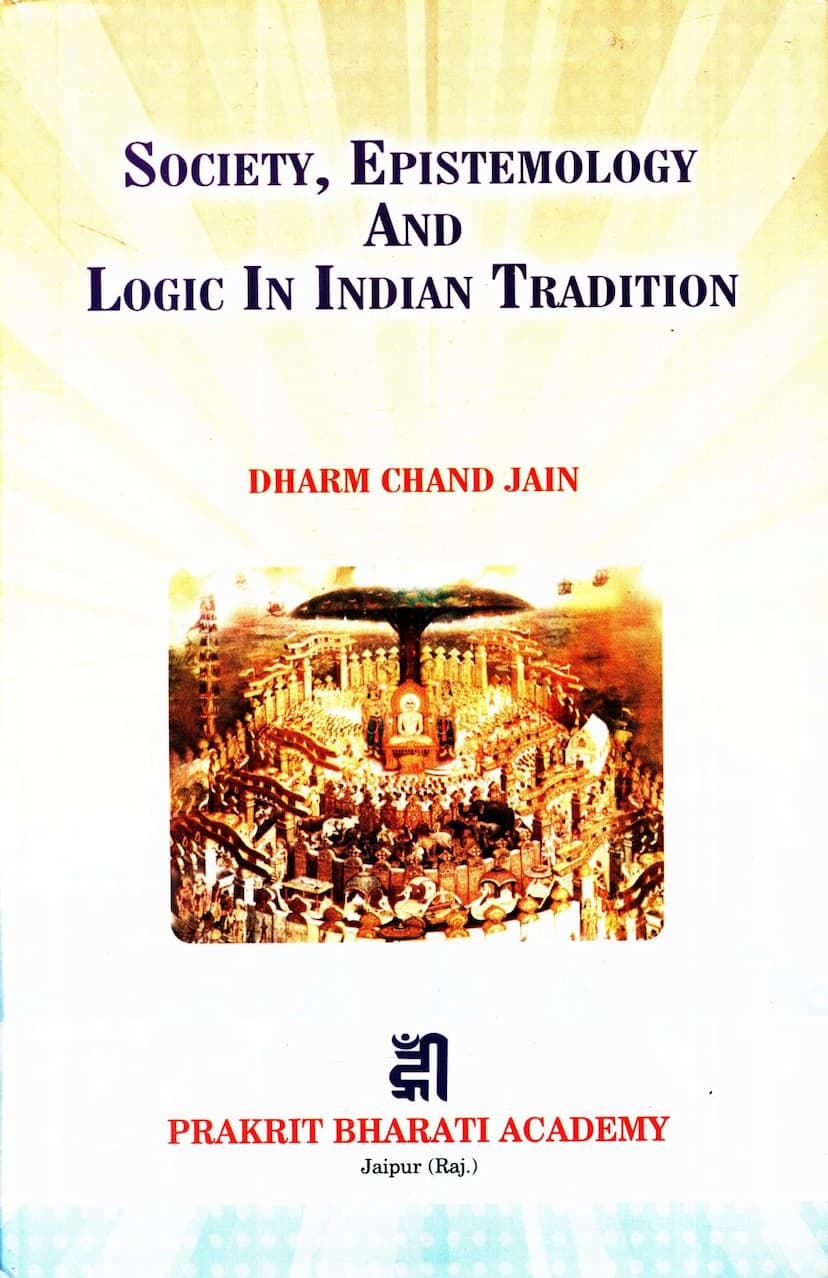Society Epistemology And Logic In Indian Tradition
Added to library: September 2, 2025

Summary
This book, "Society, Epistemology and Logic in Indian Tradition" by Dharmchand Jain, explores the rich philosophical landscape of India, with a particular focus on Jainism. It delves into three major branches of philosophy: ontology (metaphysics), epistemology and logic, and ethics.
The book highlights the core concepts of Indian epistemology, which primarily revolve around knowledge (jñāna) and the organs of valid cognition (pramāṇa). It examines different types of knowledge, including:
- Acquired knowledge (aparā vidyā) and self-manifested spiritual knowledge (parā vidyā).
- Sensuous and super-sensuous knowledge.
- Nirvikalpaka (knowledge devoid of verbal designation) and savikalpaka (determinate knowledge).
- The five specific types of knowledge according to Jainism: Matijñāna (sensuous knowledge), Śruta jñāna (scriptural or verbal knowledge), Avadhijñāna (clairvoyance), Manaḥparyaya jñāna (knowledge of others' mental states), and Kevalajñāna (pure and perfect knowledge).
The text also elucidates the definition and kinds of pramāṇa, which include perception, inference, and testimony. It further establishes recollection (smrti), recognition (pratyabhijñāna), and inductive reasoning (tarka) as valid pramāņas.
Logic, as a part of pramāṇamīmāṇsā, is discussed primarily in the form of inference for others and inductive reasoning. The book acknowledges the Buddhist contribution to defining perception as nirvikalpaka and enumerates the contributions of Jain philosophers to Indian epistemology and logic.
Beyond epistemology and logic, the book also addresses:
- The concept of society within Jainism, a philosophy often characterized as world-renouncing, and the impact of Vedic culture on it.
- The Jaina concept of consciousness, emphasizing its importance even in the modern scientific era.
- Solutions to conflicts prevalent in the minds of humans and society, drawing from Jaina principles like anekāntavāda (non-absolutism), nayavāda (theory of standpoints), non-violence (ahimsā), and the theory of karma.
The book emphasizes that despite Jainism's emphasis on renunciation, it deeply values the welfare of society and all living beings. It critiques the caste system and highlights the social relevance of core Jain tenets like non-violence, non-possession, and compassion. The work also delves into the influence of Hindu social customs and rituals on Jain practices, noting how Jain ācāryas attempted to integrate these within a Jaina framework.
In essence, "Society, Epistemology and Logic in Indian Tradition" provides a comprehensive overview of Jaina philosophy, showcasing its intricate epistemological frameworks, logical reasoning, and profound ethical and social dimensions. It argues for the universal applicability of Jain principles in fostering harmony and resolving conflicts.